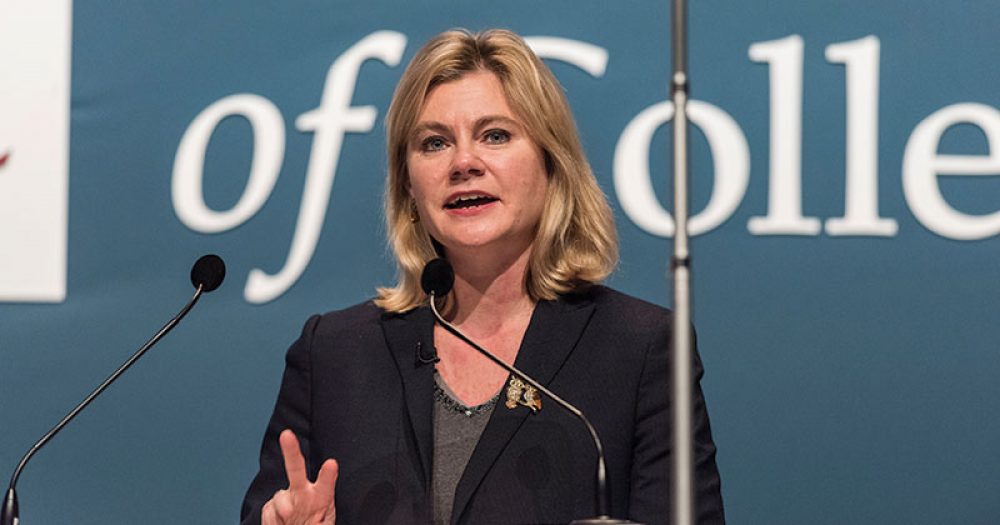The first Association of Colleges conference address by Justine Greening, as education secretary, saw her appeal for support with delivering reforms from across the “technical education family”.
Ms Greening, who was appointed to the post in July, called for widespread backing for the apprenticeship levy launch next April, and a slimmed down “high quality” post-16 FE system delivered in the wake of the government’s Skills Plan.
“Now is the time to focus on skills and finally put technical education on a par with academic education,” she said. “It is going to take a lot of hard work and I hope in time we can create a consensus on how we can deliver.”
“I want to see the technical education sector work collectively. It will mean FE colleges working alongside new national colleges, helping us to drive up higher level qualifications for level four and five.”
The first two of five planned new government-backed national colleges have opened to students this academic year, after £80 million was allocated by the government for the development of high level specialist training centres.
Apprenticeships and skills minister Robert Halfon last month officially opened the National College for Digital Skills, in Tottenham Hale.
And the National College for the Creative and Cultural Industries, based in Purfleet, Essex, opened to students last month.
“They [national colleges] need to be hubs with connections stretching out to FE colleges.
“They have to help bring on everyone else, similarly with University Technical Colleges, they are in the nascent stage at the moment. We need to see how the system as a whole can work together.”
The story with UTCs, which begin technical-based education post-14, has been less successful so far – with many struggling to attract sufficient student numbers.
In July Ofsted’s former chief inspector Sir Michael Wilshaw slammed UTCs, telling them that they need to make “radical improvement” if the model is to survive.
It followed FE Week research in February, which found that forty per cent of those that opened between 2010 and 2013 saw student numbers fall for the last academic year.
Host Steph McGovern also quizzed the minister on how to make schools give better careers advice on FE opportunities, as too many are focused at the moment on retaining students for their own sixth forms.
She replied: “I think we can make sure that funding is spare and students get a good idea of what is available outside of schools. Those conversations need to be backed up by the reality of a really strong offer.”
She did however concede that there is “a lot more we can do” around careers advice.
“The most important thing is around having the right strategy,” Ms Greening added. “I will then look at what it will take to ensure that is offered in schools consistently.”
Ms Greening also reflected on her own family’s experience of education.
She said: “I know from my own life what a difference education makes. When I look back at my family, my dad had no education and no skills and ended up filling vending machines.
“Although he was a great dad to me, there was so much more he could have given. Education was a liberation for me, but a trap for him.
“We need to step up now with vocational education. Most people don’t in the end follow an academic route as they leave secondary school. We have to make sure that the route they follow is every bit as strong as the academic route.”








Your thoughts